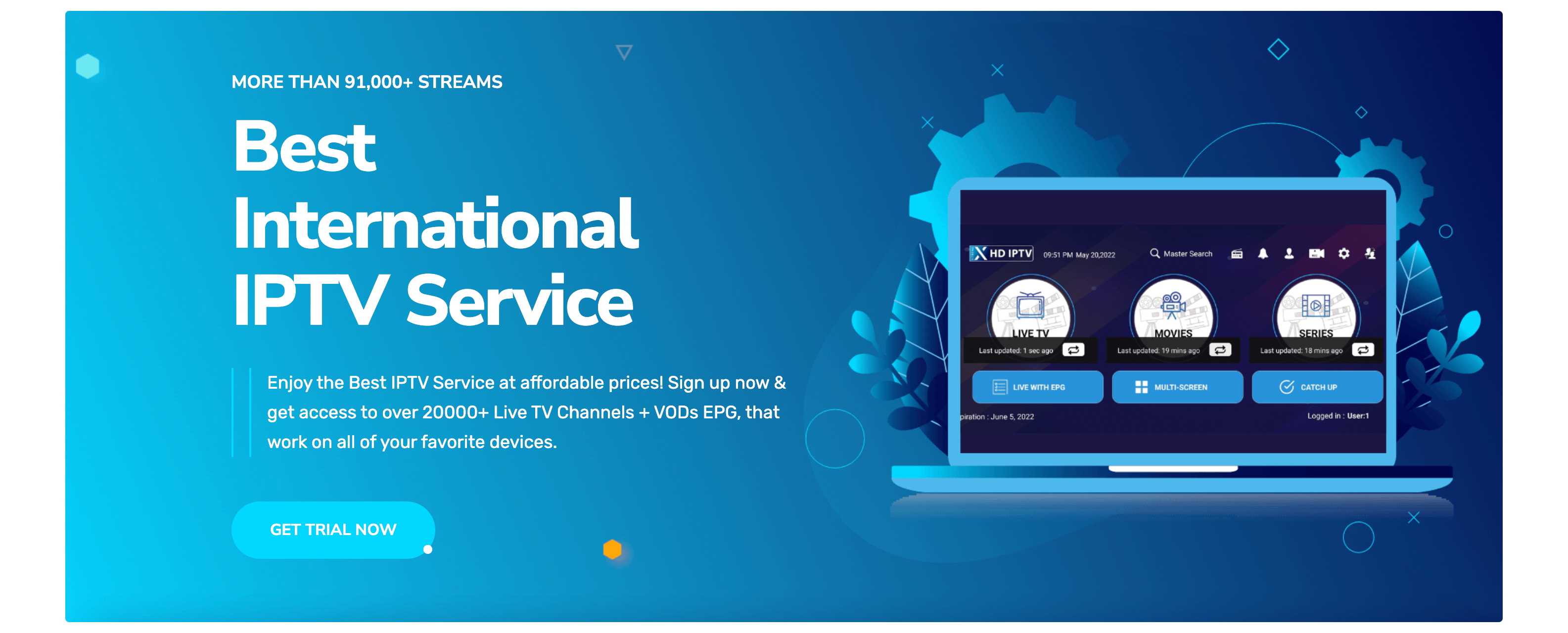Lately, how we watch television has undergone a major shift. With the rise of streaming platforms, conventional television is being replaced by newer technologies that cater to the dynamic preferences of viewers. One such technology that has garnered considerable attention is IPTV, or Internet Protocol Television. This innovative approach to television delivery has initiated conversations regarding future viewing behaviors and the potential it holds for reshaping our entertainment landscape.
IPTV stands out by streaming TV shows and movies online rather than through conventional satellite or cable methods. This transition not only boosts availability but also enables audiences with greater control over their viewing preferences. As we explore IPTV's details, it becomes essential to understand its implications for the television industry as well as how it aligns with the rising popularity of personalized and convenient viewing experiences.
Understanding IPTV Technology
IPTV, commonly referred to as IP-based Television, serves as a method of providing televisual material through the web as opposed to traditional over-the-air, orbital, plus cable techniques. This system enables users to watch real-time broadcasts plus content on demand through their fast internet access. Through using Internet Protocol networks, IPTV provides an immersive viewing experience that allows consumers to watch a broad selection of programming and content at their convenience.
The core of IPTV technology is based on the way it transmits video data. As opposed to conventional broadcasting methods that deliver signals a broad audience, this system sends data right to a viewer’s device. This enables better bandwidth usage and can provide a higher quality of service, such as high-definition video and interactive features. Consumers can watch video on different devices, like smart TVs, desktop machines, portable devices, as well as smartphones, making it flexible to current viewing habits.
Furthermore, these services frequently provide enhanced capabilities including on-demand video, recording options, and live TV pause and rewind. iptv-abonnements provide a tailored viewing experience that appeals to today's consumers seeking options and control over their viewing experience. As this technology evolves, it continues to changing the way viewers experience television content potentially characterize the next generation of the methods in which we consume entertainment.

Advantages of IPTV Over Traditional TV
One major advantages of IPTV is its convenience and flexibility. In contrast to traditional television, which requires users to stick to a set schedule for programming, IPTV allows viewers to watch content on demand. This means individuals can choose what to watch and when to watch it, resulting in a more personalized viewing experience. This shift caters to the modern viewer's busy lifestyle, making it more convenient to enjoy shows and movies at their convenience.
A further benefit of IPTV is the variety of available content. IPTV services often provide access to a broader range of channels, including special interest programs and international programming that may not be available through traditional cable packages. Additionally, numerous IPTV providers offer a variety of additional features such as catch-up TV, replay capabilities, and integration with streaming services, enhancing the overall content library and viewer satisfaction.
Affordability is another reason many people are turning to IPTV. Traditional cable subscriptions can be pricey and often come with contractual obligations. In contrast, IPTV services often provide more competitive pricing models, allowing users to select plans that suit their financial situation without sacrificing quality. This shift toward cost-efficient options has made IPTV an attractive alternative for those looking to reduce costs while still enjoying high-quality television. spintax #### Issues and Future Perspective for IPTV
In spite of the growing acceptance of IPTV, it faces multiple hurdles that might influence its future. One notable challenge is the dependence on online services. In areas where web connectivity is poor or variable, IPTV can find it difficult to deliver a seamless streaming experience. This can lead to lag and diminished quality streams, which may annoy users and discourage them from utilizing IPTV solutions. Moreover, as more users move to digital content, the appetite for internet capacity increases, possibly straining existing networks.
One more challenge is media licensing and compliance. IPTV providers must navigate a intricate landscape of copyright laws which can limit the provision of certain channels or content. Major television companies and content creators often have exclusive rights that can limit how IPTV services offer and present their programming. This can result in a disjointed viewing experience for users, as they may not have the option of viewing all the channels they want through a sole IPTV service.
In considering the future, the outlook for IPTV remains hopeful. As technology continues to advance, we can anticipate enhancements in broadband performance and overall streaming performance. Additionally, the advent of 5G technology may boost mobile IPTV offerings, offering users more options and better streams on the go. As IPTV providers develop new solutions and negotiate better licensing agreements, there is potential for an enriched content selection that meets diverse viewing preferences, making IPTV an increasingly compelling alternative to traditional television.
